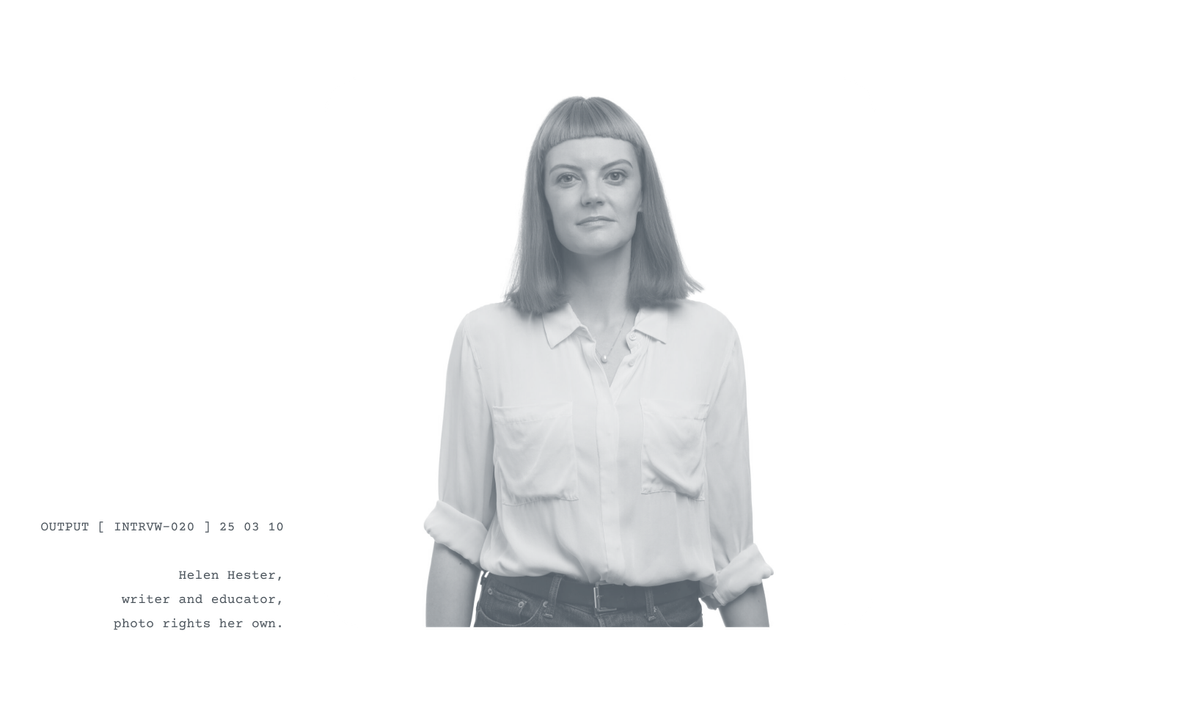Helen Hester, Writer and Educator

Helen Hester is a writer, professor and educator, focussed on technofeminism, sexuality studies, and theories of social reproduction. She co-wrote "After Work: A History of the Home and the Fight for Free Time" (2023) and is a member of the international feminist collective Laboria Cuboniks.
APOSSIBLE™ is a non-profit bringing psychologists, technologists, artists and creatives together to explore how technology can better support creativity and human fulfillment. In this ongoing interview series we’re discovering what people value, what makes their lives fulfilling, and what kinds of relationships to technology they already cherish.
1. What is a ritual, practice, or routine in your life that is important for your psychological wellbeing and/or fulfillment? Why?
There have been precious, but fleeting, moments in my life when routines have emerged and congealed, only to change beneath my feet as soon as I’ve recognised them. I’m thinking particularly here about the first years of my children’s lives – of struggling and scrambling to get a handle on their rhythms in the earliest days, settling for a bit into cycles of nap times, feeds, changes and so on, and then suddenly bearing witness to ‘developmental leaps’ in which all those routines go out of the window! One of the most cherished times in my life so far was in the winter of 2022/23, when my third born was very little, and we had a beautiful little routine of sitting up alone all night, him breastfeeding or lying contentedly on my lap (he was very serene and docile and gorgeous), or resting in his sleep pod whilst I dozed on the sofa, lit by fairy lights. That ritual only lasted for a handful of weeks, but it’s absolutely etched into me now, and I'll always remember it as utterly blissful.
2. What is a human-made creation that brings out the best in you? Why?
My inhaler. It may not bring out the “best” in me, necessarily, but it enables me to function. It is the basic infrastructure of my existence. I’ve been asthmatic since I was a baby, so I grew up with one always in my coat pocket or backpack. I was diagnosed with bronchiectasis in my early twenties, too, so I spend a fair amount of time thinking about respiratory stuff and worrying about the workings of my lungs. I saw an image of an inhaler on the artist Sam Keogh’s Instagram page some years ago – I know he’s used them in his work before – and I was struck then by the depth of my attachment to my own “puffer”. I harbour ambitions of commissioning a portrait of it from him one day!
3. When do you cherish the slow or hard way of doing something? Why?
Reading and writing. When I skim read, or read while distracted by a sense of urgency, I tend not to retain things. And if I don’t read a book from cover to cover, I’m constantly anxious that I’ll have missed the most salient details, or overlooked passages that will fundamentally shift the meaning of the whole. So ultimately, for me, it’s better to do things slowly and thoroughly in this case. It’s a similar situation with writing. Up to this point, I’ve rarely experimented with generative AI for composition precisely because, for my work, the writing is inextricable from the thinking. I also enjoy both reading and writing - but I completely appreciate how, for others, such processes can represent painful and arduous work they'd rather do without!
4. What is something you appreciate or long for from the past? Why?
I’m sure there are many more clever and interesting ways of answering this question, but it would be disingenuous of me to respond in any way other than the deeply personal – with a recognition of my appreciation for the people and relationships I have lost, along with the versions of myself associated with those people and relationships.
